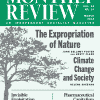
March 2018 (Volume 69, Number 10)
Nuclear weapons have been used again and again—most often by the United States—as threats directed at various nation-states to achieve geopolitical ends. Each such use takes us closer to the precipice of all-out nuclear war. | more…
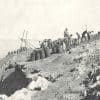
The Expropriation of Nature
To understand the present ecological crisis, it is necessary to dig much deeper into capitalism’s logic of expropriation, as first delineated by Marx during the Industrial Revolution. At the root of the problem is a spoliation of the natural environment—the expropriation of the earth itself. | more…
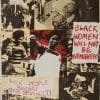
Invisible Exploitation
An expanded Marxist understanding of capitalist exploitation is long overdue. There are many pathways of surplus extraction beyond the wage form, and understanding them is a task with profound implications for anticapitalist movements around the world. | more…

The Pharmaceutical Industry in Contemporary Capitalism
The pharmaceutical industry has been enormously profitable for many decades. The myth is that these windfalls are warranted by the therapeutic advances made by pharmaceutical companies—but the reality is far different. | more…
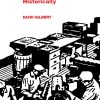
Thinking Clearly about the White Working Class
In his timely new book, David Gilbert addresses a subject that could not be more relevant: the white working class in the United States. He brings a much-needed historical perspective to current debates around the politics and identity of white workers, then and now. | more…

Between Nature and Society
Ideas and theories can only play a limited part in tackling the climate crisis, but at least they should not act as obstacles to understanding and action. In his new book, Andreas Malm maps those obstacles and proposes a path through them. | more…
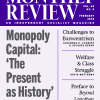
February 2018 (Volume 69, Number 9)
A recent article by the economist Riccardo Bellofiore includes a significant treatment of Paul Sweezy’s dynamic theory of monopoly capital. But the essay’s most noteworthy contributions, in our view, relate to Harry Magdoff and Sweezy’s role in the 1970s and ’80s in developing a theory of financialization, and what their analysis can tell us about our current situation. | more…

‘The Present as History’ and the Theory of Monopoly Capital
The most important principle of the monopoly capital tradition is that of “the present as history”—a focus on the historical specificity that separates the various modes, stages, and phases of production and accumulation, and its application to our understanding of the present. | more…
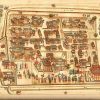
Economic History and the ‘East Wind’
The decline of Western dominance over the capitalist world system and the concurrent rise of Asia demand a deconstruction of the accepted wisdom of economic history. Understanding the legacy of Eurocentrism in both the rise of capitalism and its historiography is necessary if we are to challenge the dominant discourse and ideological assumptions of the so-called “European miracle.” | more…

The Working-Class Struggle for Welfare in Britain
The experience of the British working class from the late nineteenth century to the current era of austerity illustrates that for labor, the welfare state is not just a mechanism to enhance the accumulation of capital or reinforce oppression. From the beginning, it was a vital part of the class struggle—and so it remains today. | more…

Preface to Beyond Leviathan
The state cannot be other than Leviathan in imposing its structurally entrenched power on overall societal decision-making. Yet a way must be found to extricate humanity from the ever more dangerous, arbitrary, and alienated form of the Leviathan state. Indeed, the survival of humanity depends on it. | more…

Patriarchies East and West
Sara Farris’s In the Name of Women’s Rights is a brave monograph that analyzes the way that the discourses of Europe’s right-wing nationalists, government agencies, and liberal feminists converge in their representations of Muslim and non-western immigrant women, relegating these communities to commodified spheres of social reproductive work. | more…
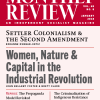
January 2018 (Volume 69, Number 8)
The recent rise of social reproduction theory represents one of the most remarkable attempts to extend historical materialism in our time. The Review of the Month in this issue, “Women, Nature, and Capital in the Industrial Revolution,” is intended as a contribution to this rapidly growing body of work. | more…